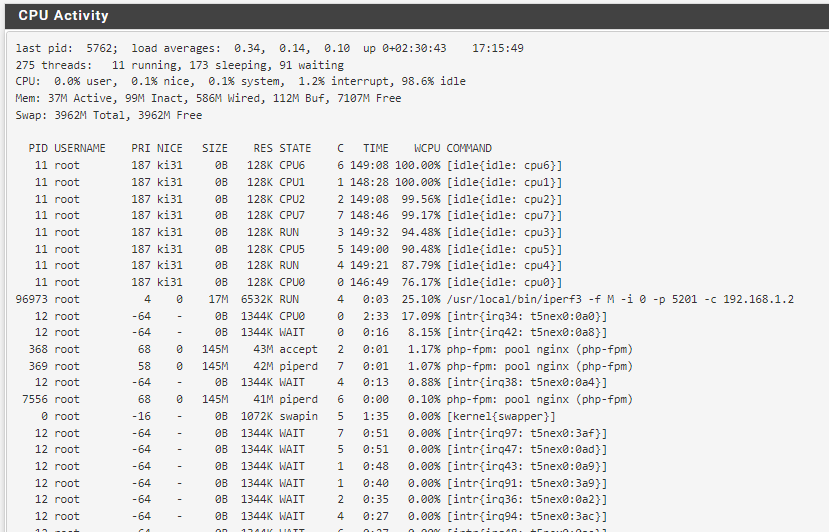10GB link but only 1GB speeds
-
Hi to all,
I'm currently using pfsense 2.7.0 CE with the following hardware : DELL R230, CPU Intel Xeon E3-1260L v5 @ 2.90GHz, 8 Go DDR4 with Chelsio T540-CR network card (10gb quad port NIC).
I use all interface, i have 1 port used for WAN connexion, the others with differents VLANs.
I have a 10Gb internet connection with my ISP, I've done various speed tests but I never go over 1 Gb.
On PC, i use a Chelsio T6225 SO CR 10gb card with i9-11900T CPU.So I installed iperf on pfsense and did some speed tests.
In order to neutralize the intermediate 10gb switch, I connected the firewall directly to my PC in 10gb.
The firewall and PC are connected directly via fiber with sfp+ modules.The results I'm getting are similar, which tells me that the problem is with my pfsense firewall.
There must be some technical limitation I don't know about... and I need your help to find out what's wrong.Many thanks in advance for your help.
On server side
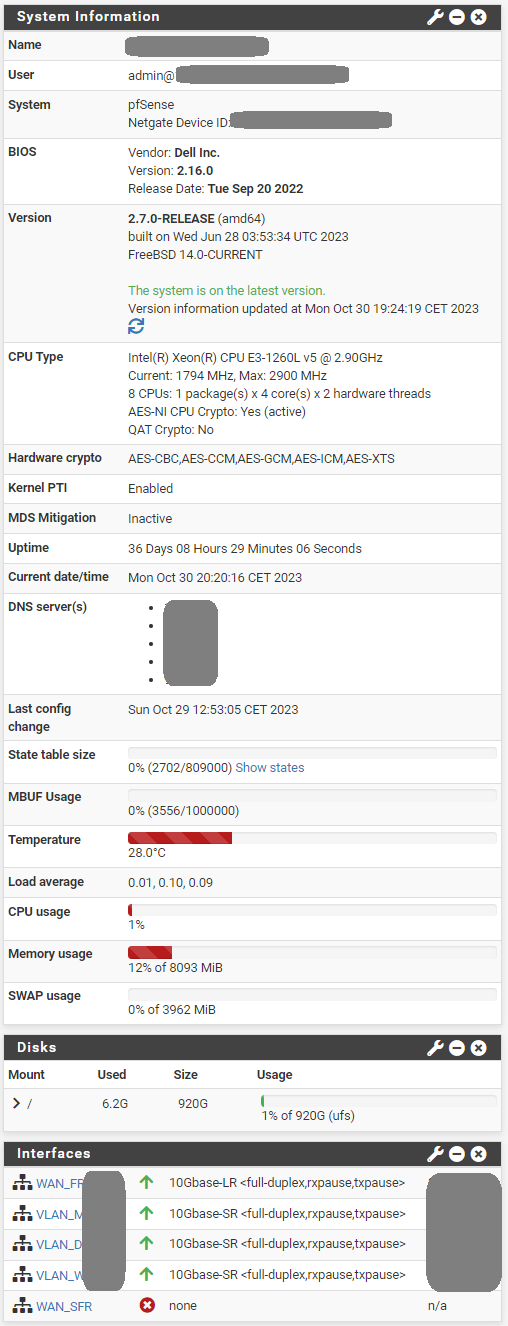
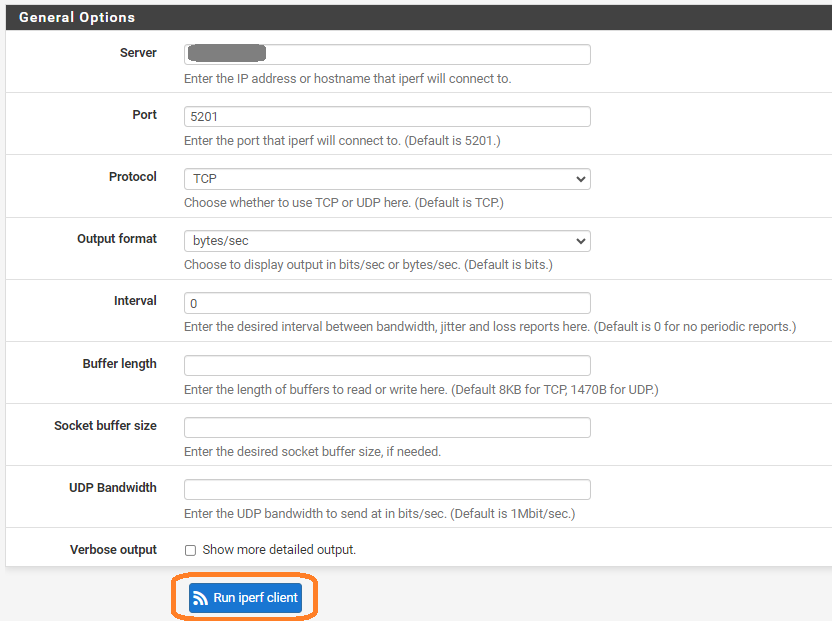
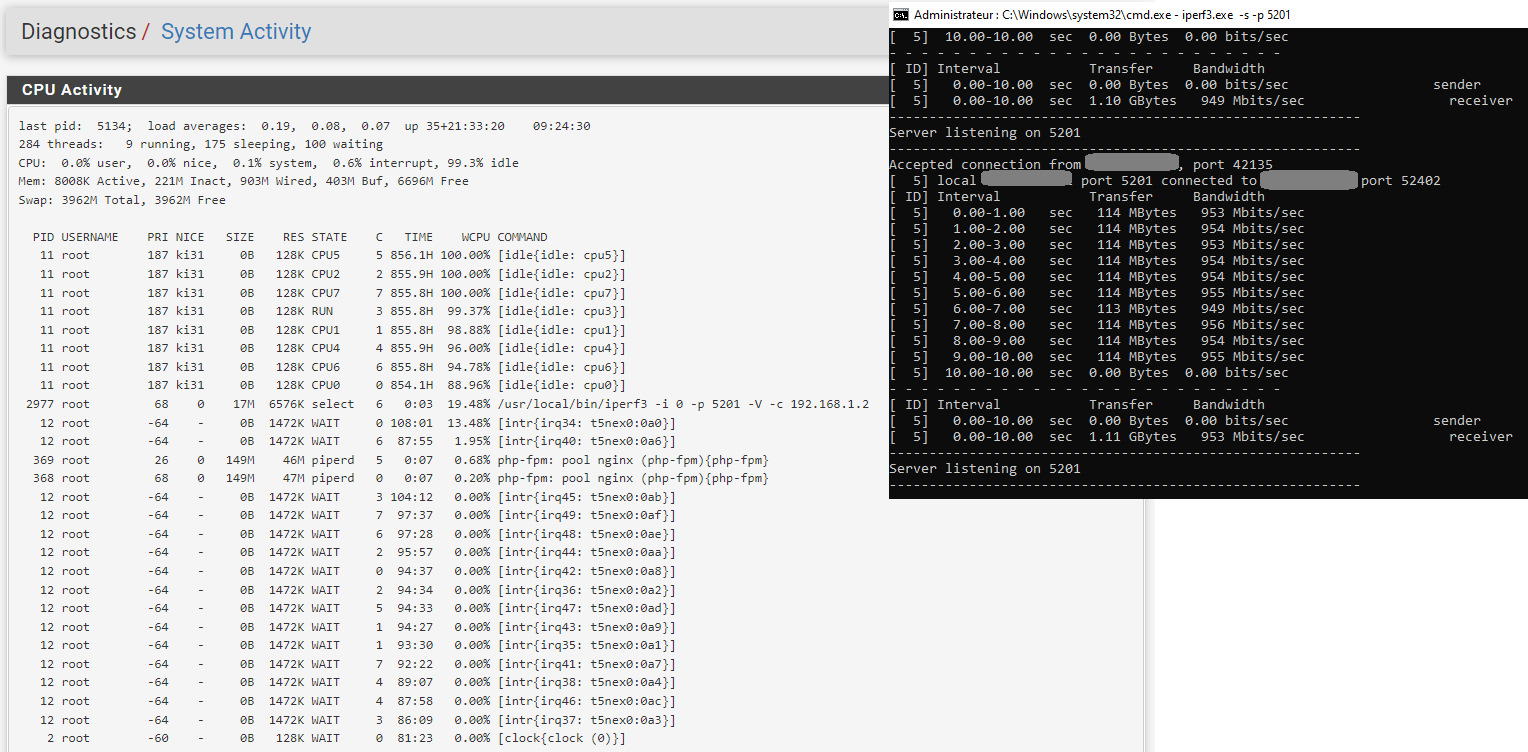
On PC side
PS C:> Get-NetAdapterHardwareInfo
Name Segment Bus Device Function Slot NumaNode PcieLinkSpeed PcieLinkWidth Version
Ethernet 0 3 0 4 2 8.0 GT/s 8 1.1
Ethernet 4 0 6 0 0 22 5.0 GT/s 1 1.1
Ethernet 3 0 7 0 0 23 5.0 GT/s 1 1.1
Ethernet 2 0 3 0 4 2 8.0 GT/s 8 1.1
Wi-Fi 0 14 0 0 7 5.0 GT/s 1 1.1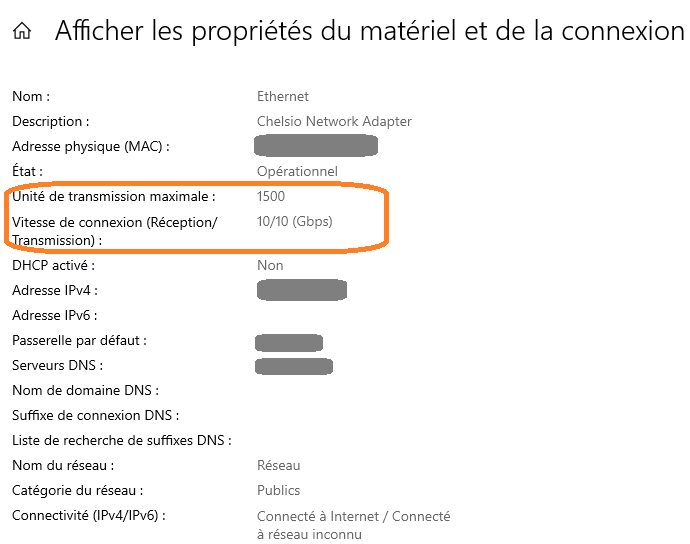
-
Try these tuning options:
https://docs.netgate.com/pfsense/en/latest/hardware/tune.html#chelsio-cxgbe-4-cards -
Thanks for your reply, I'm going to test this.
Just to make sure I don't make a mistake, I need to add the information in the loader.conf.local file, right?I followed the following procedure:
Navigate to Diagnostics > Edit File
Enter /boot/loader.conf.local in the Path to file to be edited box
Click Load to load the existing content in the file if any existsWhen I perform the action, I get the following error message: Files doesn't exist or is not a regular file

I guess the file doesn't exist by default and I have to create it, right?
To create the file, I need to enter the following information:- the path to the file to be created in Save/Load a file from the filessystem
- All the parameters in the input field below
- Click Save to create the file
- Restart the server to take the new parameters into account
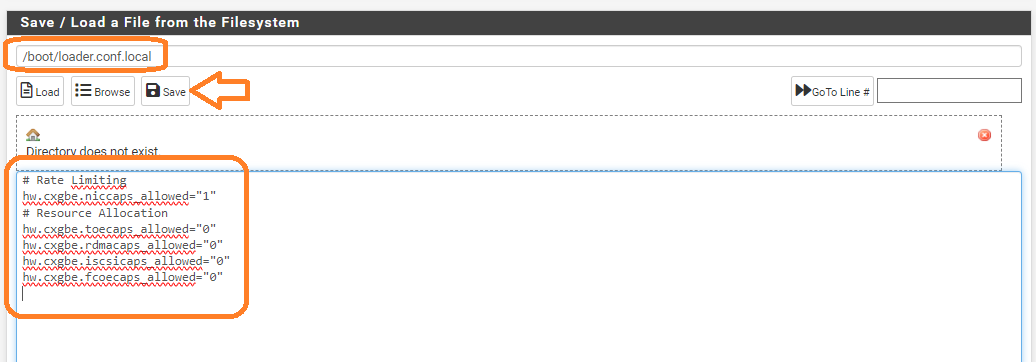
Is this the right way to do it?
Thank you for your help.
-
@Elrick75 said in 10GB link but only 1GB speeds:
I guess the file doesn't exist by default and I have to create it, right?
Exactly.
That looks good.
-
@stephenw10 Does it make sens to add also the information below too ?
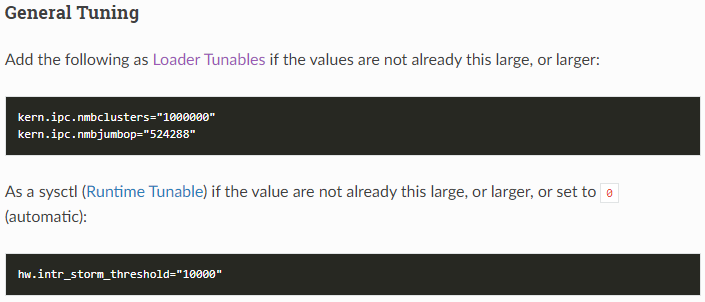
-
No I wouldn't expect to need those.
If you're hitting the rate limit issue it should be pretty obvious once you apply that first loader tunable. -
It sounds really better... 1Gb to 3Gb but far as ~7,6Gb
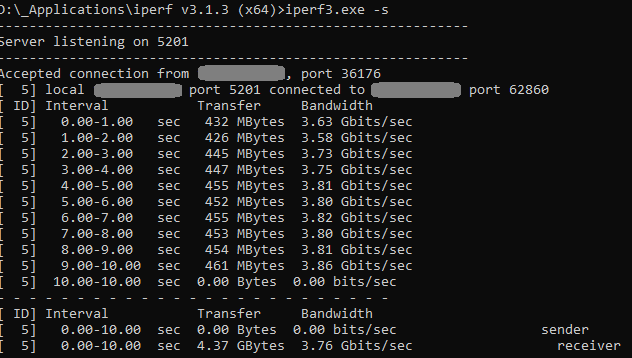
Is there any other optimisation that i can do ?
-
How are you testing that exactly? That looks like single steam so one CPU core. What is running the iperf client?
-
@stephenw10 Exactly the same like before.
pfSense as client, a workstation as server.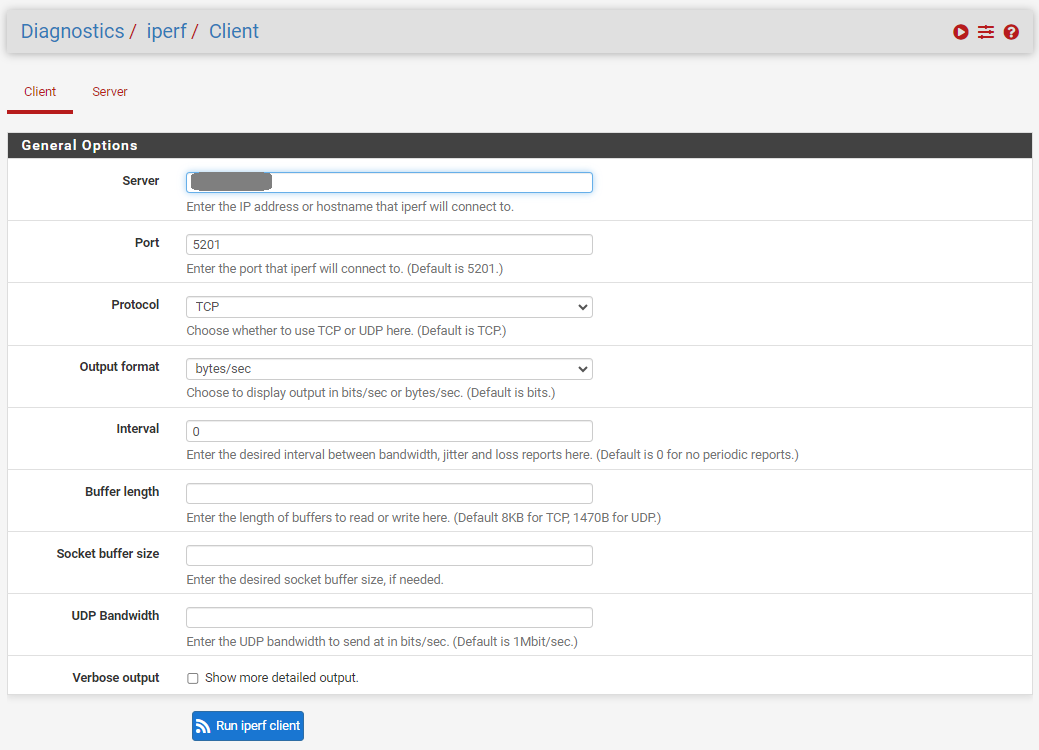
-
Ok try testing between two interfaces not to/from pfSense directly. pfSense is a bad server!
-
@stephenw10 said in 10GB link but only 1GB speeds:
Ok try testing between two interfaces not to/from pfSense directly. pfSense is a bad server!
The reason I was doing the test was to get the best bandwidth with my ISP, which offers a 10Gb connection (~8Gb max in reality).
So I need to understand and improve the speed between pfsense and my local network if I'm going to be able to match the speed with my ISP... because with only 3Gb, I'm way off the mark.What could be a problem with pfsense that I can still improve? Unless it's the card and its driver that aren't optimized to reach this target!
The change that we made is changing my bandwotch with my ISP too... i have 3Gb downstream rate.
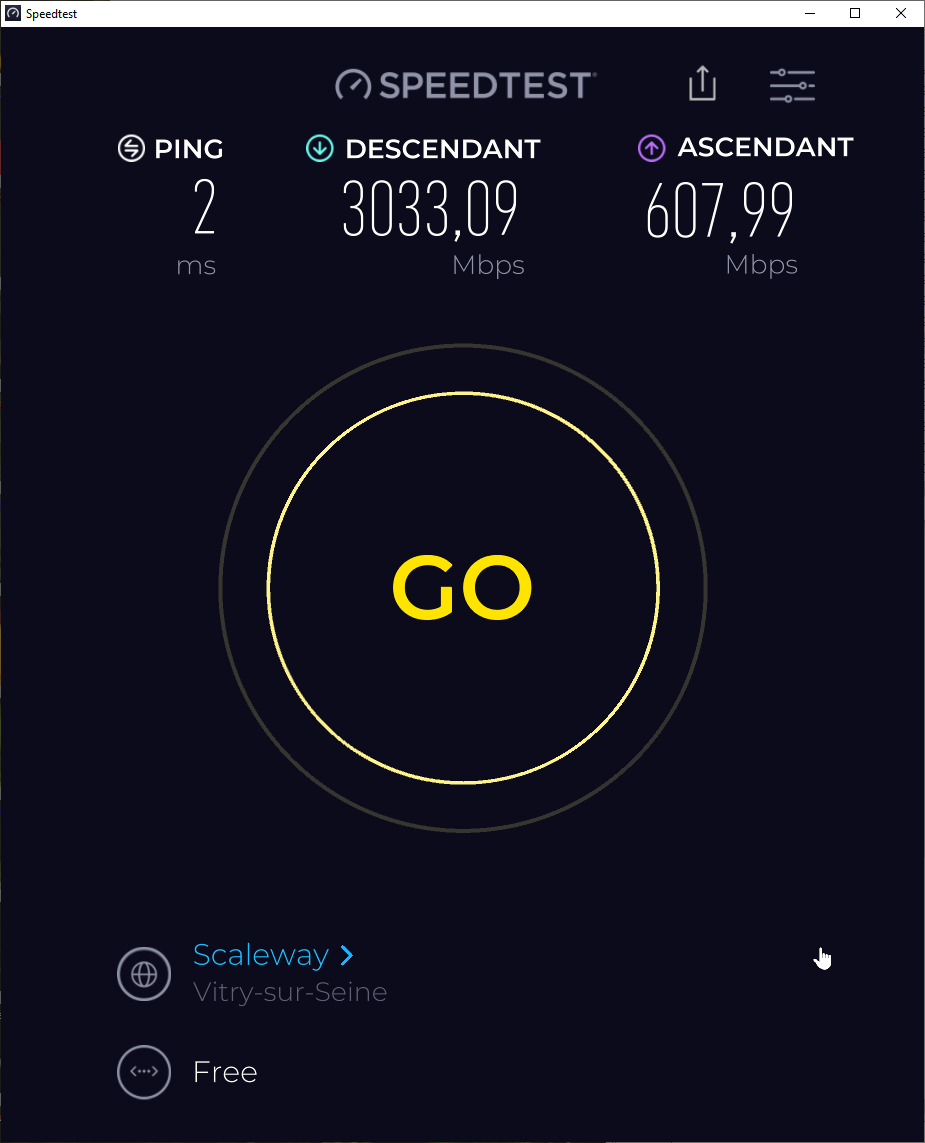
-
First check the per core CPU uage whilst testing either in Diag > System Activity or at the CLI using
top -HaSP -
-
Hmm, nothing filling a core there. But you can see iperf itself is the largest consumer.
What about at the other end?
What can you pass if you run multiple streams in iperf?
Or with multiple iperf instances?
-
@stephenw10 said in 10GB link but only 1GB speeds:
Ok try testing between two interfaces not to/from pfSense directly. pfSense is a bad server!
Hi Steve,
May I ask about this and why pfSense is a bad server?
I can understand hardware limitations that can limit a system and these are pretty common on low power CPUs on router / firewall devices but unsure why pfSense or BSD itself would provide a barrier.
I don't run anything above 10 GbE (ie SFP+ being the limiting factor) but I don't appear to have any issues with iPerf traffic beyond the physical interface limits, even when using the GUI version and with the link handling other concurrent traffic:
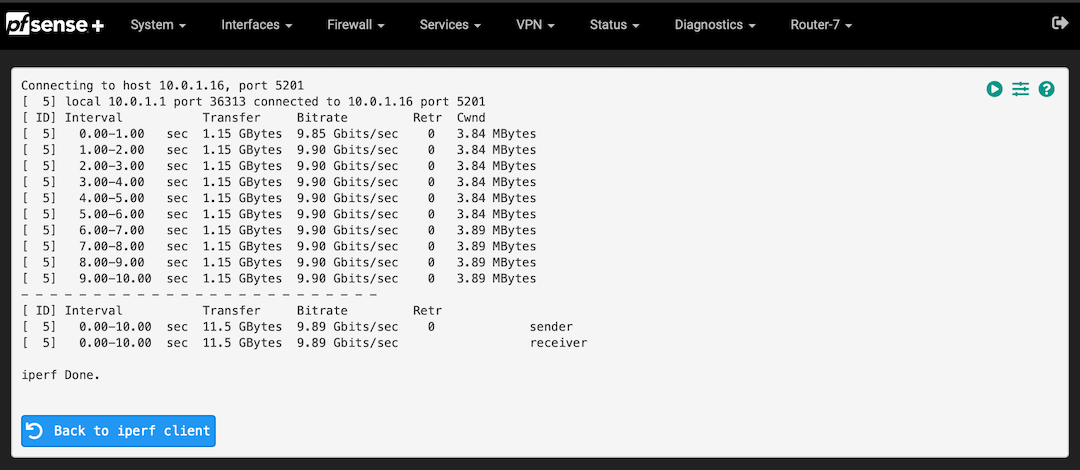
The actual limits for production routing sit elsewhere (traffic mix, encryption, ACLs, firewall, states, VLANs or (in my case) PPPoE). Simple iPerf testing seems trivial, if both ends have the guts to process the packets.
 ️
️ -
That's on the Ice Lake Xeon box you have?
Mostly it's bad because a bunch of TCP tuning stuff that you would want on a server only hurts on a router where TCP connections are not terminated. The TCP hardware offloading options make quite a big difference.
For many devices the iperf process itself uses significant CPU cycles that could otherwise be routing packets. You often see much higher throughput values testing from a client behind it on low core count appliances.Steve
-
@stephenw10 said in 10GB link but only 1GB speeds:
That's on the Ice Lake Xeon box you have?
It is the Ice Lake Xeon-D. Thanks for the explanation and the normal disabling of NIC offload functions didn't occur to me; but otherwise it is hardware issue rather than a pf/BSD limitation, if I understand you correctly?
Having come from MIPS routers I understand that running iPerf from a device, rather than through it, can be practically impossible!
 ️
️ -
There are some other tunables in the network stack that are set for better routing at the expense of terminated connections. I've occasionally spent time tweaking them but the pfSense defaults are pretty good for most firewall type scenarios. If you are using pfSense as, say, a platform for HAProxy or a VPN concentrator there may be some improvement possible.
-
